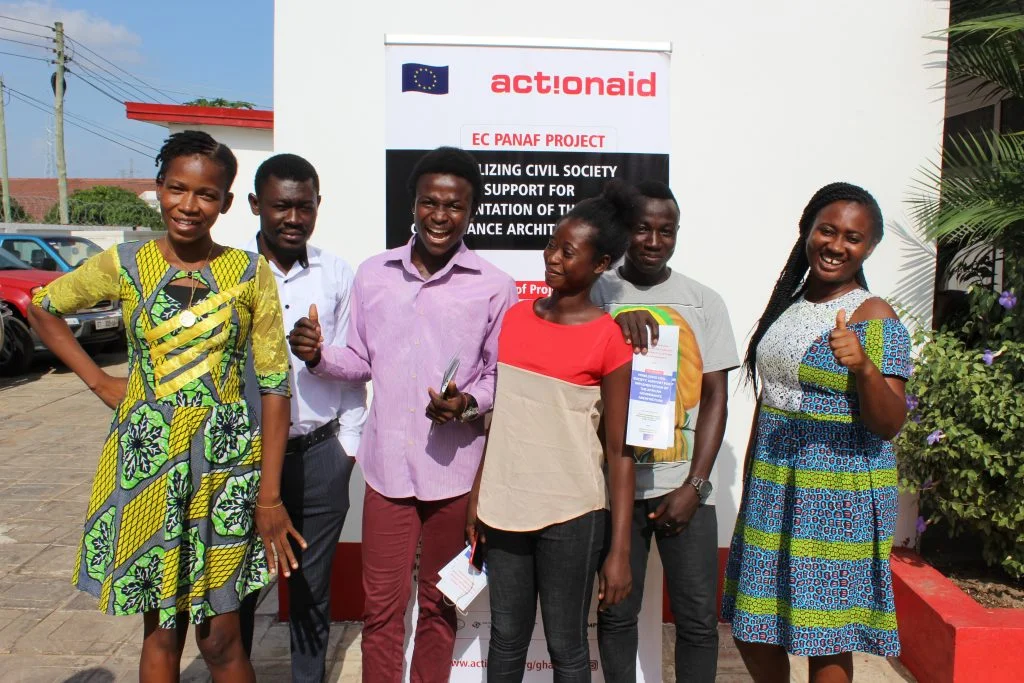Using climate-smart agriculture to empower youth in Botswana.
You’re The Change You Want to See, Says One Young Leader in Benin | The Youth Cafe
Giving Voice to Young Women in Ghana | The Youth Cafe
10 Things You Need to Know to Fund Your Business | The Youth Cafe
Creating a ‘Cascade of Change’ for Patients in Uganda | The Youth Cafe
Job Entry-Level Skills: Seizing the Moment, Securing the Future | The Youth Cafe
By Alex O. Awiti, Caleb Orwa, Lucy Mbuvi & Mercy Karumba
The aim of this study was to generate evidence to support reliable assessment of the skills and competences possessed by youth in entry-level jobs (the supply), and the skills and competences needed by employers (the demand).
The study was conducted in 24 counties, which are home to over 85% of Kenya’s formal sector business establishments . Fifteen sectors, comprising agriculture, wholesale & retail, construction, health and ICT, which account for 90% of jobs in both formal and informal sector, were included in the survey. A total of 9,355 interviews were conducted; 6,362 employed youth and 693 self-employed youth aged between 18 and 30 years both in the formal and informal sector, and 2,300 employers from formal and informal sectors.
The study revealed that Kenya’s labour markets are shaped by the dominance of sectors such as wholesale and retail, food and accommodation services and transport, which account for most jobs created in the economy. Consequently, it appears that there is less demand for hard, technical skills compared to skills such as marketing and sales and entrepreneurship.
Women-Led Startups in SDG Implementation | The Youth Cafe
Guest blog: R. Bong Vergara is the founder and director for CYPHER Impact Investment Exchange (CYPHER X), a California nonprofit focused on the investment readiness of women-led startups.
Low investment flow and poor investment readiness impede the participation of women entrepreneurs in the technology field, thus, in advancing the STI framework for local Sustainable Development Goal (SDG) implementation. Only 2% of funded startups are women-led. If women startups are to fully contribute to the low-carbon transition, it is important to eliminate low investment flow and poor investment readiness as gendered and racialized barriers. Doing so requires strategies that are participatory, inclusive, and creative.
UN, WWF and World’s Insurers Unite to Launch First Insurance Industry Guide to Protect UNESCO World Heritage Sites | The Youth Cafe
Geneva/Gland/Paris/São Paulo, 15 October 2019—The first guide for the insurance industry to protect our world’s priceless and irreplaceable assets was launched today at a major event by UN Environment’s Finance Initiative (UNEP FI) in São Paulo, Brazil, convening leading insurers, investors and banks.The pioneering guide, Protecting our World Heritage, insuring a sustainable future, builds on last year’s launch of the first insurance industry statement of commitment to protect World Heritage Sites. The statement is supported by leading insurers—writing about USD 170 billion in gross premiums and managing USD 2.7 trillion in assets—as well as by insurance associations and key stakeholders around the world.
Guest Blog: Climate Breakdown? We Need to Talk About the Treasury | The Youth Cafe
Guest blog by Andrew Simms is an author, analyst, and campaigner. the original article can be found here on the New Weather Institute.
His several books include The New Economics, Ecological Debt: Global Warming & the Wealth of Nations, Tescopoly: How One Shop Came Out on Top and Why it Matters, Do Good Lives Have to Cost the Earth? and most recently Cancel the Apocalypse: The New Path to prosperity.
Andrew contributes to the Guardian and BBC, and co-founded the New Weather Institute
Extinction Rebellion held a People’s Assembly in Parliament to identify new priorities for each government department, this is an adapted from Andrew Simms’ short speech on the challenge to the Treasury
When he led the Treasury as Chancellor of the Exchequer, Gordon Brown used a standard joke to warm up the audience at the start of his speeches. He’d say, there are two types of Chancellor – those who fail and those who get out in time. It usually got an indulgent laugh, but the best entertainment was watching his aides who had to be amused while pretending that they hadn’t already heard it countless times.
Guest Blog: The Thunberg Bubble | The Youth Cafe
Guest blog by Nick O'Connor of Exponential Investor subscribe here
Nick O'Connor is the publisher of Southbank Investment Research, one of Britain's leading publishers of independent financial advice and alternative ideas. Southbank Investment Research is one of The Agora Companies, a global network of private publishing companies with roots going back to 1978.After becoming Associate Publisher in 2015, Nick was instrumental in exposing the state’s plans to abolish cash – publishing The War on Cash with Tim Price, and personally bringing a petition with more than 10,000 signatures to Parliament.
Here’s a prediction for you: Greta Thunberg is creating three of the world’s most important future trends. Simultaneously. And largely without meaning to.
Trend one, her movement will (intentionally) create the world’s first mainstream global political movement. A cross-border political party. The kids skipping school today will make up its voter base. They’ll probably have time on their hands, too, since they decided activism beats education.
Trend two, this cross-border party – or perhaps union is a better term, or grand alliance – will bring about the first “world taxes”. That is, taxes applied directly to the people universally, to pay for a global initiative. Carbon taxes, most likely.










